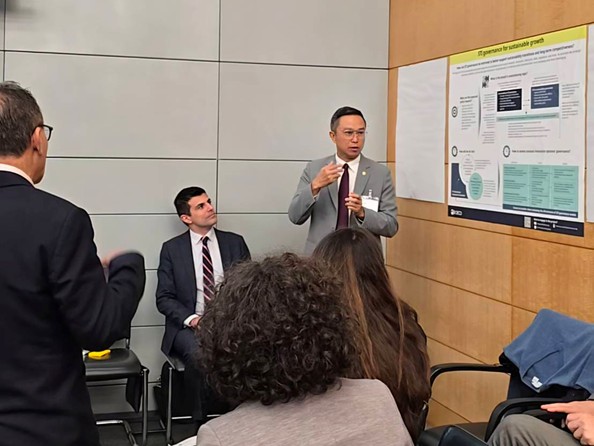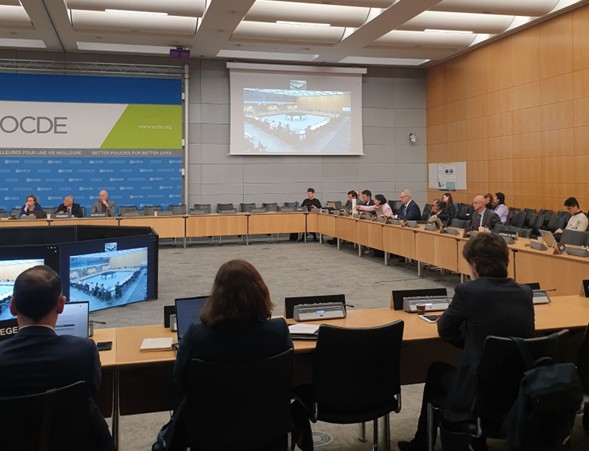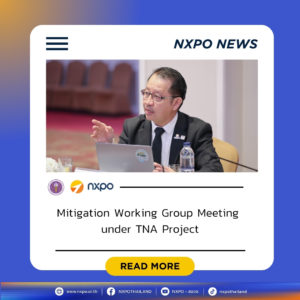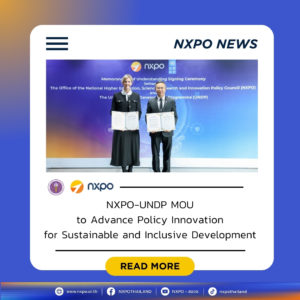NXPO recently took part in the 126th Session of the Committee for Scientific and Technological Policy (CSTP), hosted by the Organisation for Economic Co-operation and Development (OECD).
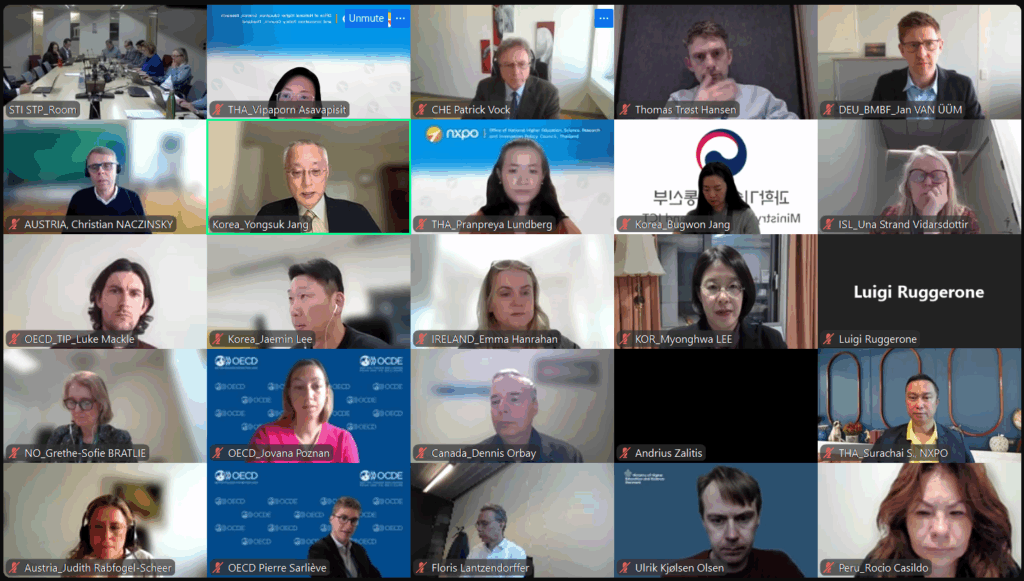
NXPO President Dr. Surachai Sathitkunarat led the Thai delegation as the country’s representative, joined by Dr. Pranpreya Sriwannawit Lundberg, Director of the International Policy Partnership Division, Ms. Vipaporn Asavapisit, Senior Policy Specialist, and Mr. Parinand Varnasavang, Policy Specialist. The session was held in two parts: an online meeting on 2 April 2025 and an in-person gathering at the OECD Headquarters in Paris from 23–25 April 2025.
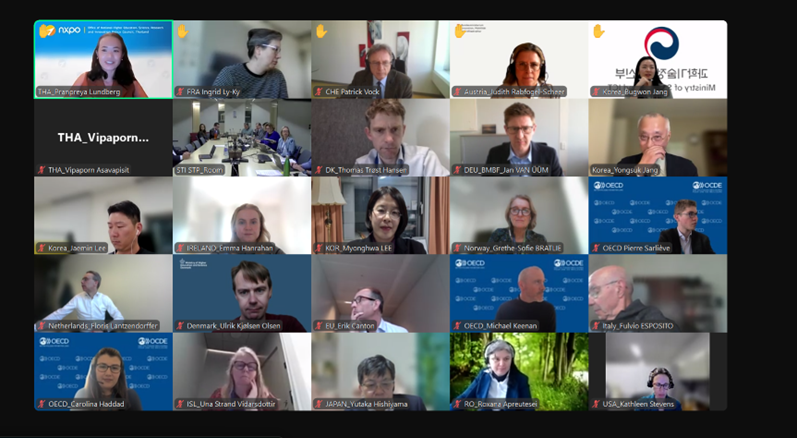
During the online session, Dr. Pranpreya contributed to the agenda on innovation policy, congratulating Singapore on presenting its Research, Innovation and Enterprise (RIE) Strategy. She highlighted the strong bilateral and multilateral collaboration between Thailand and Singapore within the ASEAN framework and emphasized the significance of the OECD’s Transformative-Readiness Assessment Framework, in which Thailand serves as the first pilot country. She expressed confidence that the insights generated would provide valuable input for future policy development.
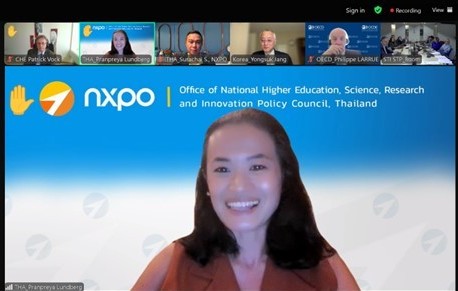
In a separate agenda item on the European Commission–OECD Science, Technology and Innovation Policies (STIP) Compass, Dr. Pranpreya reported on Thailand’s national data collection efforts for the platform. She noted that NXPO had convened a briefing session for more than 30 relevant domestic agencies, alongside the OECD STIP Compass team, to offer guidance and exchange perspectives on the practical applications of this database.
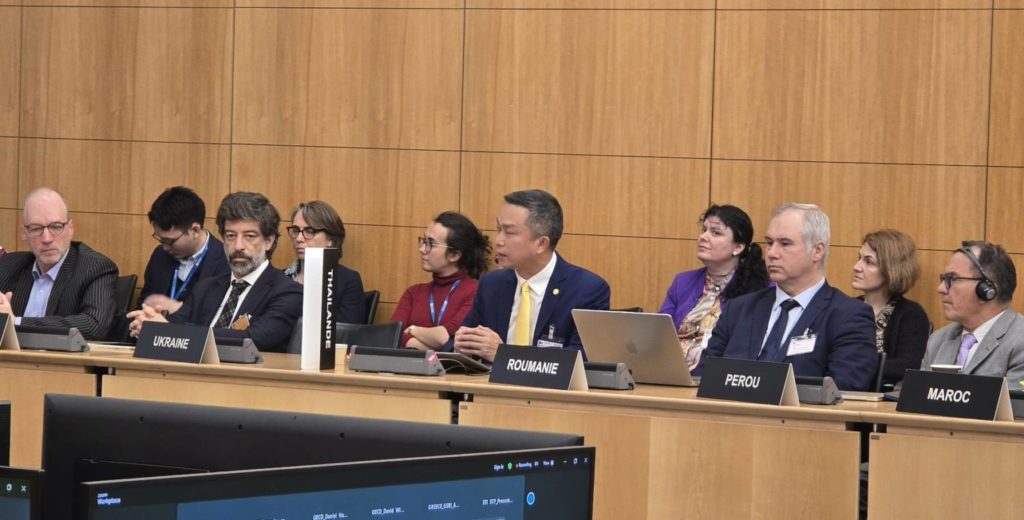
At the in-person meeting in Paris, the Thai delegation discussed details of the draft OECD Science, Technology and Innovation (STI) Outlook 2025 across several sessions. Delivering a statement on research and technology security, Dr. Surachai underscored that, amid today’s complex geopolitical landscape, security considerations in STI policy have become unavoidable. Nevertheless, he reaffirmed the importance of maintaining international cooperation, particularly in advancing the Sustainable Development Goals (SDGs) under the 2030 Agenda. He stressed that science and technology remain critical tools in addressing global challenges such as the climate crisis, poverty, and emerging risks. Dr. Surachai further conveyed Thailand’s support for the principle that governments should implement responsible STI security policies with long-term implications in mind and emphasized the crucial role of international collaboration in sustaining a strong, multilateral system.
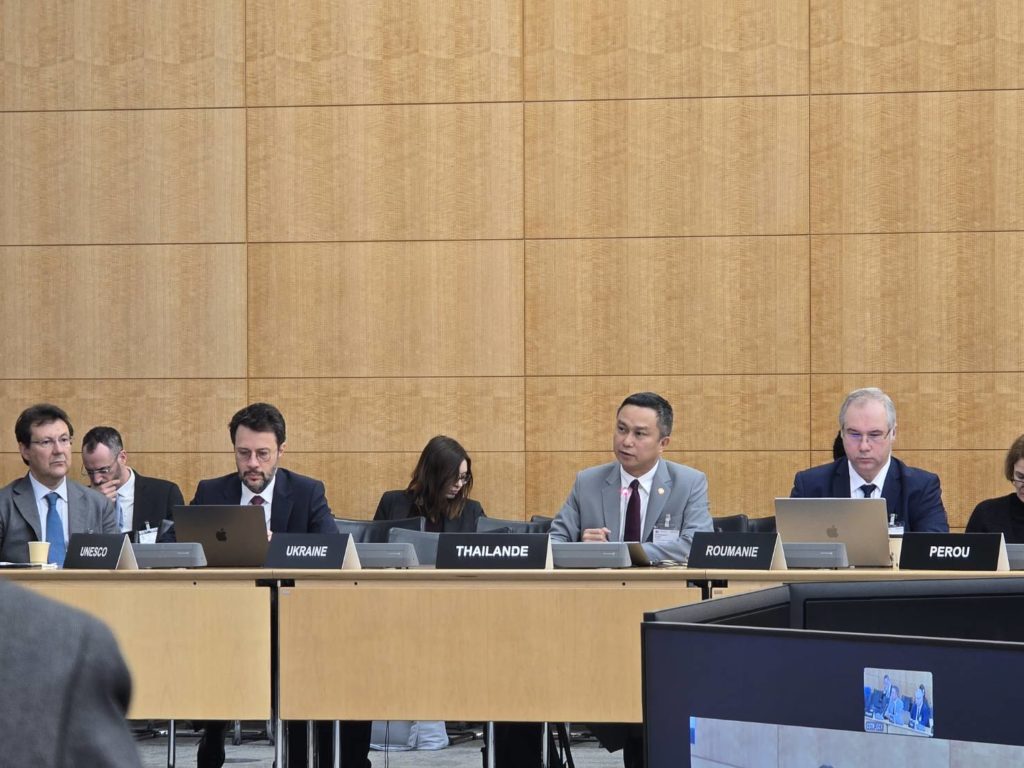
Dr. Surachai also voiced his support for agile STI policies driven by strategic intelligence. He highlighted NXPO’s AI Foresight Platform for Policy Design, a project leveraging artificial intelligence to strengthen strategic planning and foresight capabilities in the public sector. He also introduced Thailand’s policy sandbox initiatives, such as the Saraburi Sandbox, a public-private partnership developing a low-carbon city model, and noted the ongoing challenges in securing sufficient funding for innovative pilot projects of this nature.
Thailand’s participation in CSTP meetings and related activities not only facilitates the exchange of policy approaches for building an effective innovation ecosystem and advancing international STI collaboration to address global issues, but it also supports Thailand’s OECD accession process.
